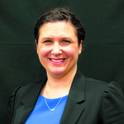Abstract
“As the scholarly workflow is increasingly migrating to the web, formerly hidden uses like, reading, bookmarking, sharing, discussing and rating are leaving traces online and offer a new ground to measure…”
As long as there have been scientists, researchers and authors there has been a need to suss out who amongst them are the experts and innovators in their respected fields. Historically this label of expert or having impact could help you gain favor with royalty or “powers that be”. Yet this raised the oft asked logistical question of how does a scholar actual measure the impact of their own work. Today it is still much the same. The role of the academic incudes “responsibility to share…through engagement not just of their students but also of the wider community.” Knowledge authors and researchers in academia often find themselves vying for tenure and funding by demonstrating their value to their profession through a variety of analytics of their work. Often in the form of patents or citation counts. A study conducted over the course of several decades found in 1969 only 21% of faculty agreed with the statement that it is difficult to gain tenure if you have not published and 20 years later 42% of faculty now agreed with the statement. Today on average faculty spend only 11 hours per week on teaching and advising related activities. The rest of the time as a faculty member is spent on research, scholarship and other tenure related pursuits like committee work. Recently the United Kingdom has determined that proving value for dollars now requires making “impact assessment” a key part of the “research governance” during evaluation of what impact funded research will have beyond academia. Although anecdotal evidence can be interesting, analytics are the traditional method used by scholars to assess their level of impact. The mathematical processes of gaining the analytics attaches meaning about research, author and impact on their field by exposing patterns in the process and output present in the data that is obtained. The information obtained though analytics will then be applied to the discussions of scholars impact. When specifically looking at scholarly Impact, the traditional metrics gathered represent three specific areas of interest. Journal level Impact, Article level Impact and Individual researcher impact. The measure is mostly bibliographic metrics i.e. citations and publications in peer reviewed journals that demonstrates the scholars ability to establish academic merit. Traditional metrics have their value. They are often easily comparable, fairly standard and understood by most scholars. For authors or institutions using only this citation data to asses impact it will be important to note not everything can be found in the data “invisible areas of impact…will not be tracked.” “Journal publication in actuality is only one indicator of scientific impact. Impact, understood as a researcher’s esteem and influence within the scientific community relates to the dynamics of scientific communication.” Legal scholars have shared a similar course in sharing their works with others. First in the form of letters where great minds pondered the legal theories of the day and later in “academic scholarship” in the form of law review articles. New opportunities for the way scholarly Impact is assessed is needed in both the scientific and the legal scholarship realm as the scholarly communication evolves. At present it is the scientists that have begun to embrace the use of altmetrics to put a tangible metric to the scientific discourse that they are participating in at the invisible college. Social media provides a wealth of data and this has allowed them to begin to assess their impact and participation in the communication has had on their field.
Keywords
- Law,
- Scholarship,
- Technology,
- Education,
- Altmetrics,
- Scholarly Impact
Publication Date
August 15, 2014
Location
Harvard Law School
Citation Information
Kathleen (Katie) Brown. "Are The Scientists on to something with altmetrics? Exploring the best way to assess and track the scholarly impact of an author" CALI (2014) Available at: http://works.bepress.com/katie-brown/8/
